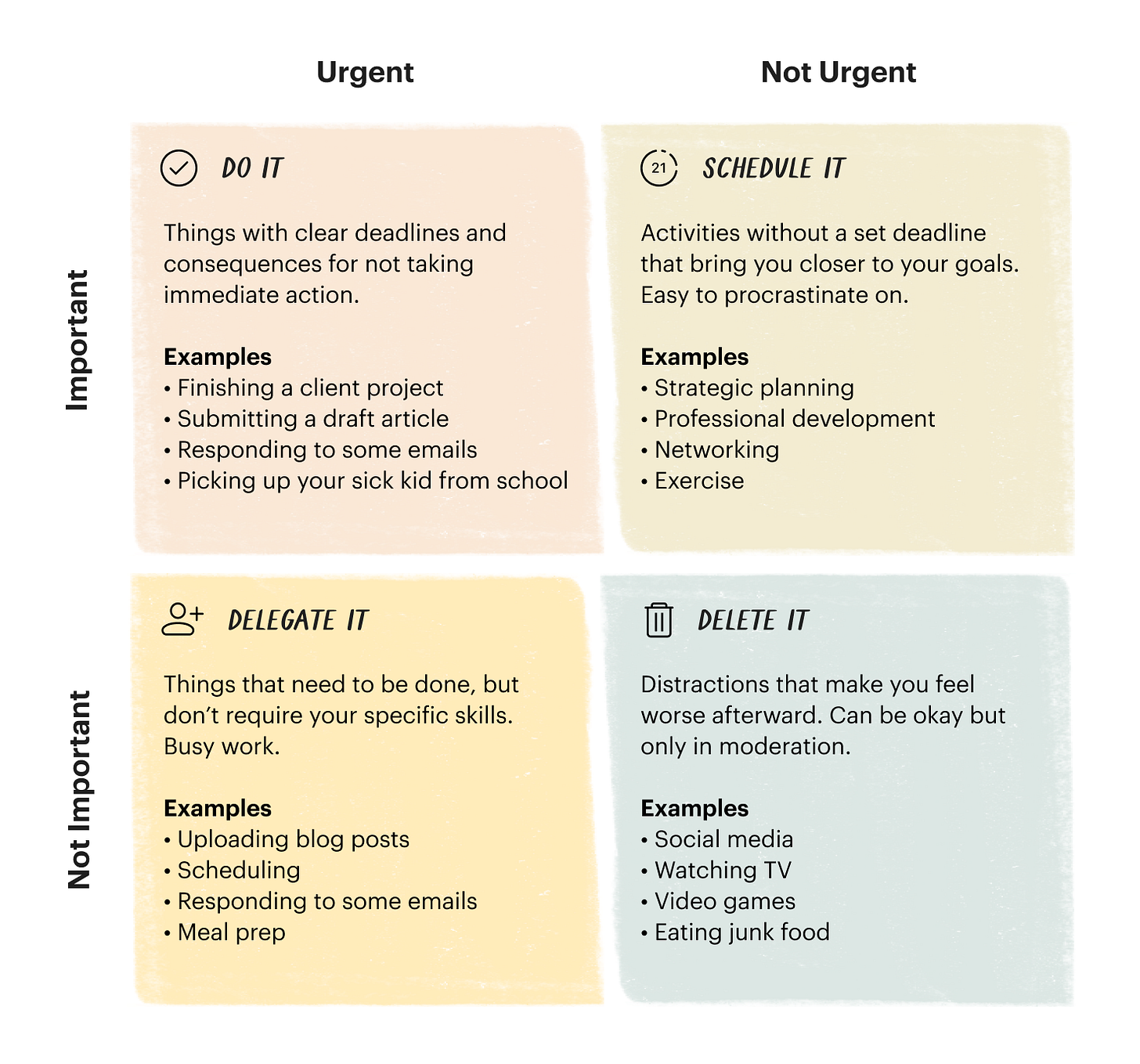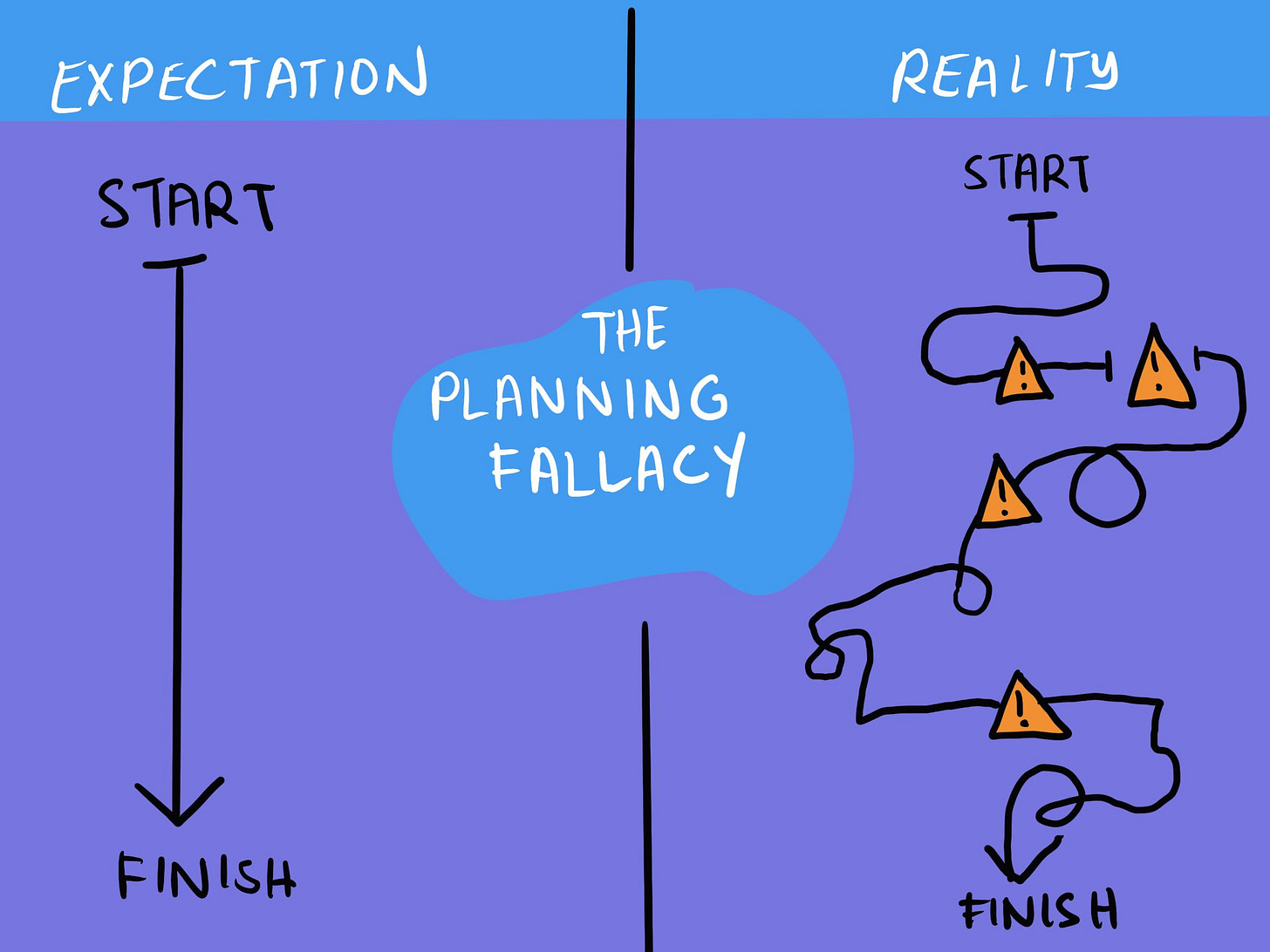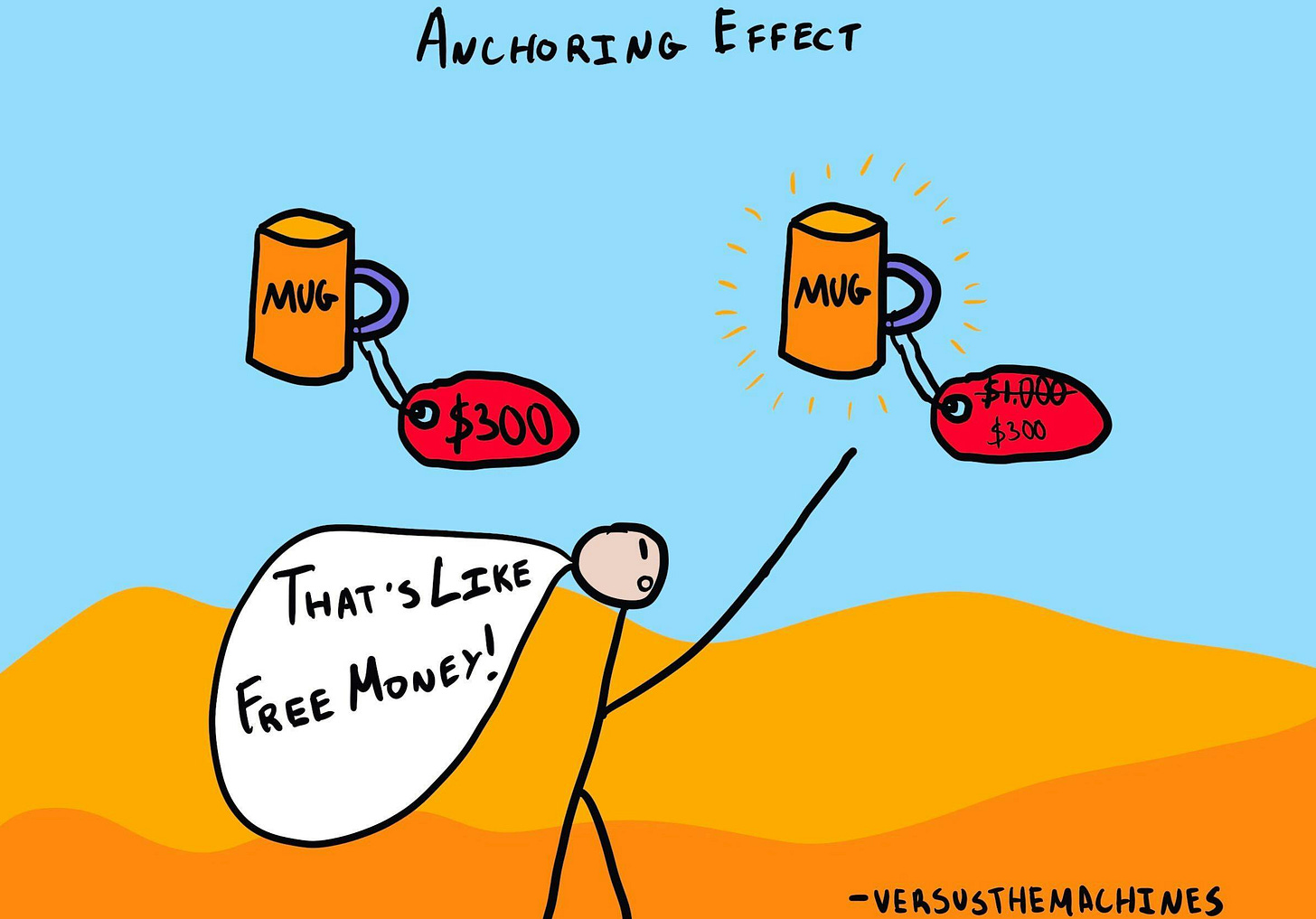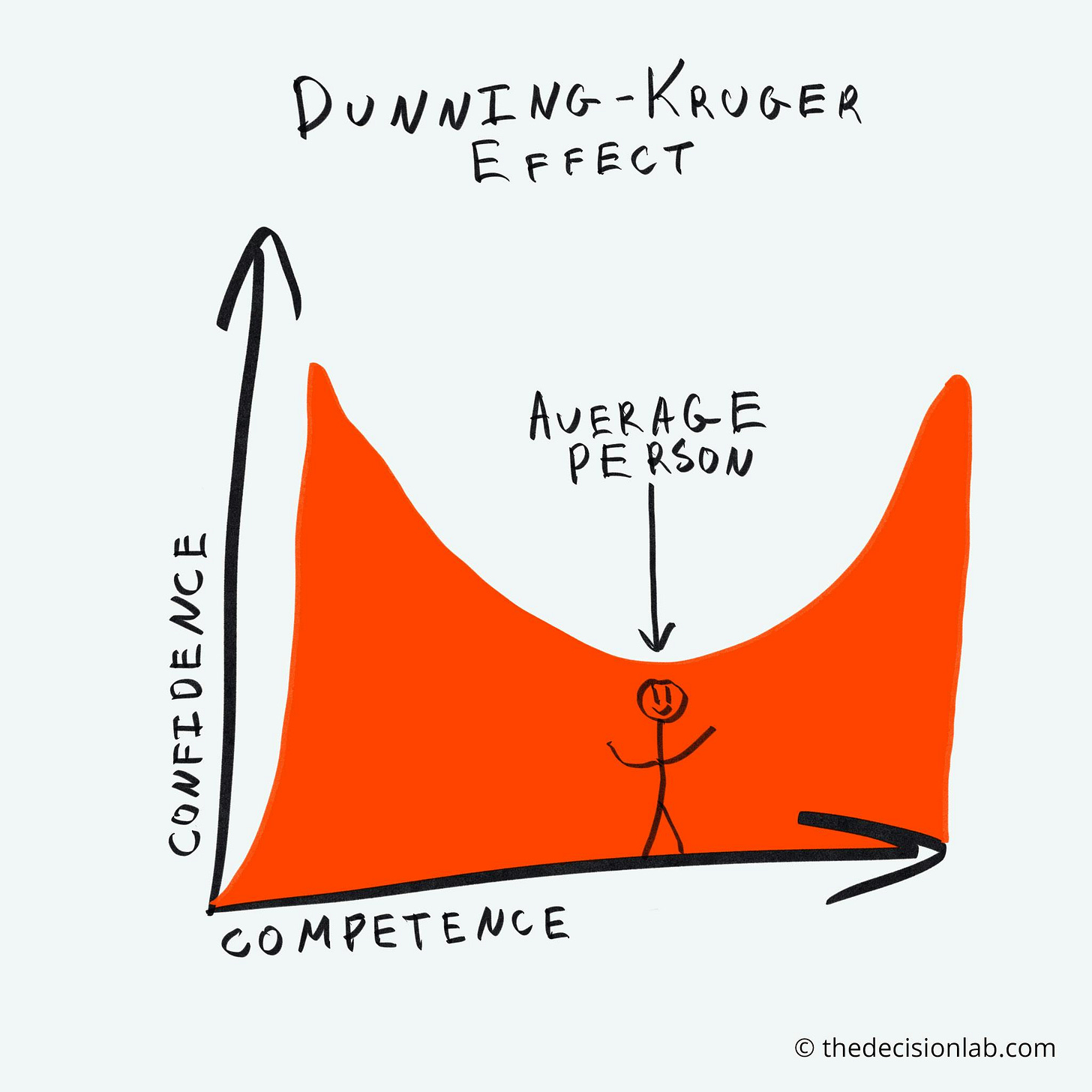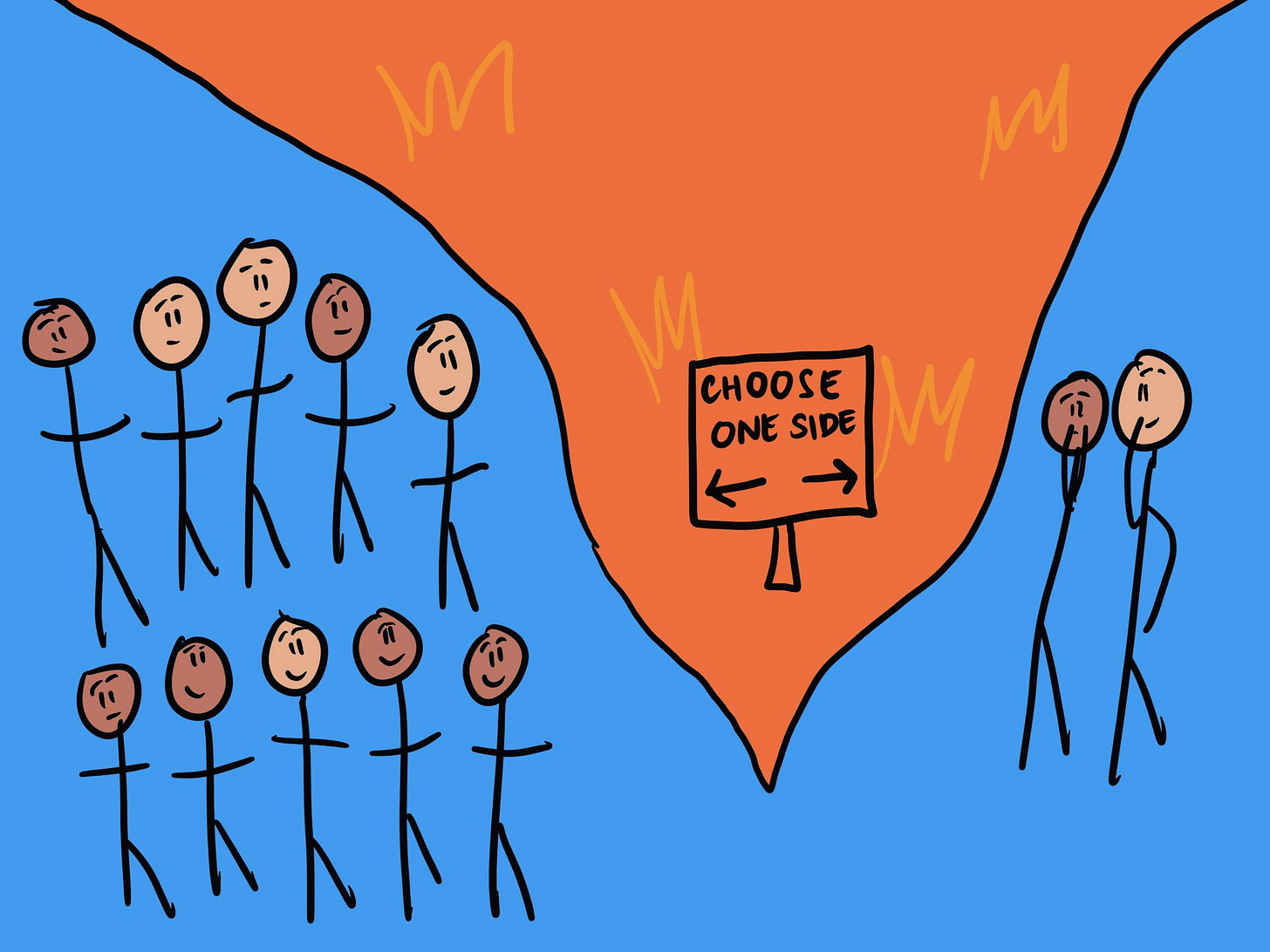
We all fall prey to cognitive biases, which are unconscious thinking patterns that can hold us back when we're trying to achieve our goals. I wish I had learned about them sooner because they're easy to overcome, but only if we can spot them first.
So, in this edition of Hustle Heads, I will share some of the things I've implemented that have helped me break these mental barriers. Let's dive right into the world of psychology and mental pitfalls.
🥜 In A Nutshell
Set aside time for important tasks that are not urgent.
Add buffers in planning to create more realistic schedules.
At the end of the day, make a small to-do list for tomorrow to clear your mind and to stop thinking about unfinished tasks.
Get into the habit of writing a gratitude journaling and meditating to reduce the impact of negative thoughts on your mind.
A feedback poll for my readers at the end.
🏃 Mere Urgency Effect
Many of us feel like we're putting out small fires left, right, and centre. We feel like we’re stuck in a hamster wheel and not working on what's truly important to us, things that might offer long-term rewards. This could be because of a cognitive bias called the Mere Urgency Effect.
We tend to prioritise urgent tasks over important ones—the mere urgency effect used to consume my days. I would wake up, respond to emails in bed, and then work reactively the rest of the day, tackling one seemingly time-sensitive task after the next.
Former U.S President Eisenhower once said,
What's important is seldom urgent, and what's urgent is seldom important.
But how do you know which tasks are important and which ones are distractions? The Eisenhower Matrix, a tool developed by President Dwight D. Eisenhower and refined by author Stephen Covey, can help you figure that out.
So, one habit that's helped me avoid getting caught up in the mirror urgency effect is time blocking. This is a time management technique where we divide our day into blocks dedicated to specific tasks.
My approach is super simple. I make sure that I set aside some time daily to work on a really important task that is not necessarily urgent. For example, I will be working on the ItsMyResume website this morning. So, this isn't necessarily urgent, but it's essential. By dedicating a specific time block to it, I'm ensuring it doesn't get buried under the urgent stuff.
⏱️ The Planning Fallacy
It's a well-known fact that home renovations frequently exceed their allotted time and budget. Students notoriously run out of time to complete their projects. This is because of a cognitive bias called the planning fallacy, which is our tendency to underestimate the time, cost, or effort required to complete a task, even when we've done it before.
It's because we're optimistic. We feel like it's going to be different this time. I always fall for this because I plan for the best-case scenario and expect everything to go according to plan, but I should know better by now.
So, to overcome the planning fallacy, I've gotten into the habit of tracking how long tasks actually take. Then, I use this information to create more realistic schedules. I also always add a buffer of about 20% to my estimate so that I'm not stressed out if things don't go as planned, which can often be the case.
I always used to do something like this, at least an extreme version of it, when I was in university. I would actually move my exam date three days earlier in my agenda, and even though I knew it wasn't true, seeing the deadline fast approaching really motivated me to study. If I needed a little bit of extra time, well, now I had it. So add buffers. Honestly, they are game-changers.
⚓️ Anchoring
This bias is a close cousin of the Planning Fallacy. If you’ve organised or planned a big event in your life, chances are that you might have experienced this bias.
I’ve planned for a birthday party with an estimated attendee count of 100 people and have set aside a budget of $1000 for the food and decorations. As the event date approached, more family members and friends expressed their interest in attending, and the RSVP list grew to over 150 people. But I struggled to adjust my initial budget and plans. I continued to anchor around my initial estimates, by making only minor adjustments to the original budget. This is a classic example of the Anchoring effect in action.
Anchoring is problematic if our original plans are unrealistic, as it happened in my case. Even if our initial predictions are massively inaccurate, we still feel tethered to those numbers even as we try to reassess, limiting us to prefer only minor tweaks rather than major readjustments.
Thankfully, I had some wise people in the family who could convince me and saved the birthday party. So here’s what you can do to avoid Anchoring. After you’ve made your plan, get it peer reviewed by people with experience in the same field. In my case, I should have gotten my plan reviewed by people who’ve planned large events before going ahead with it.
💪 The Dunning Kruger Effect
The idea is that when we are bad at something, we believe that we are better at it than we actually are.
I remember a while ago, when I was working on my side hustle, I had to design the landing page for my app. I am a terrible designer, but the Dunning Kruger effect made me think I am pretty good at it. The landing page gave me no leads, and it took me weeks to realise that I had to hire a designer to redo it for me.
We do this because we cannot realise what being “good” or “bad” at the task actually looks like. This is because the skills needed to be good at a task are the same skills that we need to be able to judge why we are bad at it.
🧠 The Zeigarnik Effect
Have you ever found that when you go home at the end of the day, you still have these unfinished tasks in your head? This is likely the result of what psychologists call the Zeigarnic Effect. It's our tendency to remember uncompleted tasks more easily than completed ones. This happens because our brains seek closure and resolution.
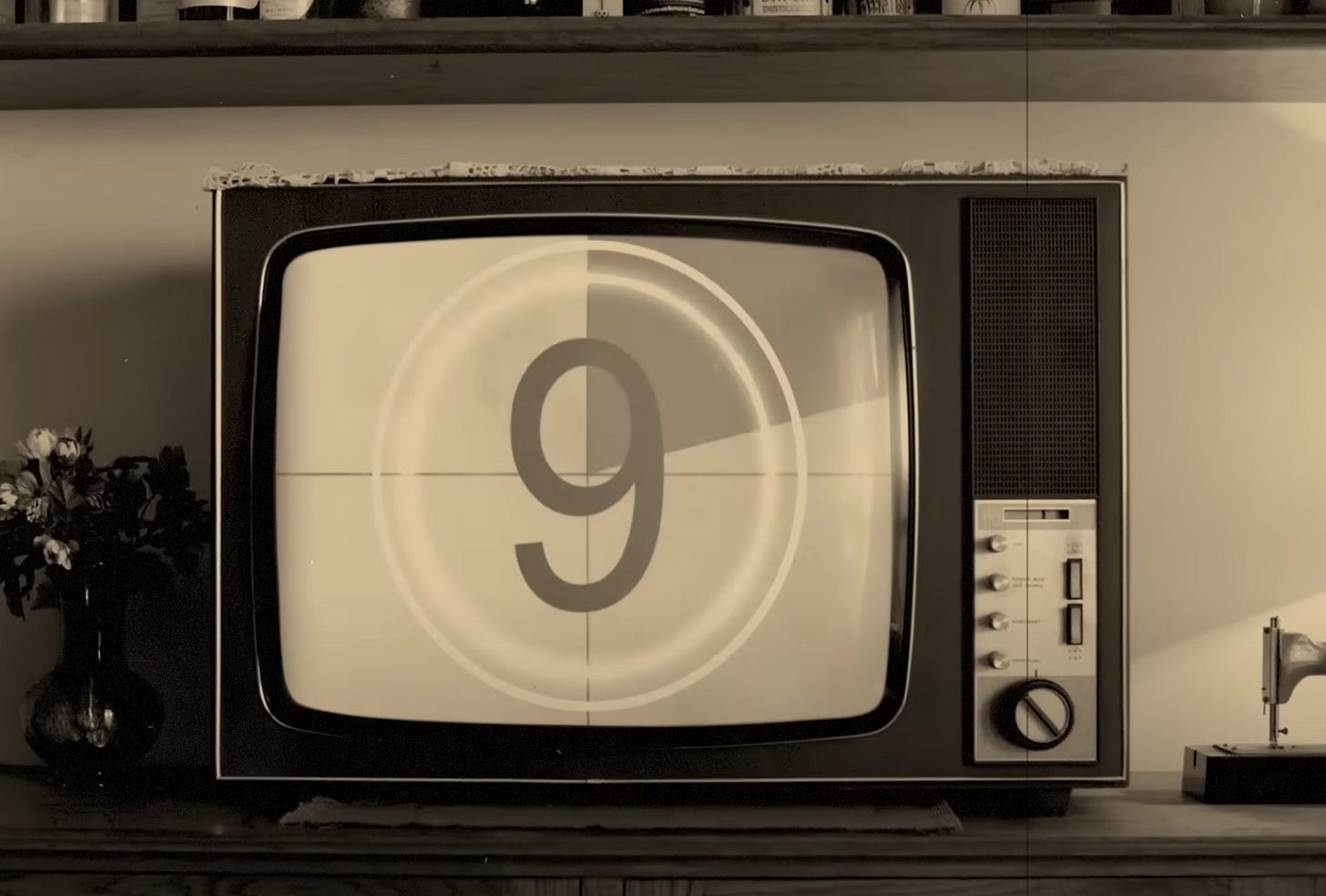
The same effect explains why we keep thinking about a show ending in a cliffhanger. The problem is that unfinished tasks dominate our thoughts, take up brain power, and dilute our focus on other things. At the end of the day, I don't want the intrusive thoughts of tasks left undone following me home when I'm trying to wind down.
So what can we do about it?
Well, for one, the brain is a terrible filing system. So I try to do this: instead of keeping all the tasks floating around in my head, I make a habit of writing them down as part of my end-of-workday routine. I make a super brief and rough plan for tomorrow. It takes about two minutes, but it's just so that I know the uncompleted tasks will soon be resolved. That way, I can hopefully relax and enjoy my evening.
🎸 Bandwagon Effect
Why do we support opinions as they become more popular? I’ve recently come across a news article of an incident between a common bus driver and a female political leader. Although the political leader was at fault, she had the power of her gender, party, press, social media to convince the public that the bus driver was the wrong-doer. The bus driver, amidst all opposing forces, had to fight for justice, convince people that he was innocent, and regain public support.
The Bandwagon effect refers to our habit of adopting certain behaviours or beliefs because many other people do the same. There are a few reasons why we do this:
We rely on mental shortcuts called heuristics. The bandwagon effect serves as a heuristic by allowing us to make decisions quickly. Fully thinking through an idea takes time and energy, but a widespread adoption of an idea acts as a cue to adopt a similar stance.
Most of us dislike feeling excluded from communities and societies. To avoid being the odd one out, we tend to go with the popular opinion, because conformity ensures some degree of inclusion and social acceptance.
We want to be on the winning side, and more often, the beliefs of the majority feel right and are subsequently adopted. Sometimes, even though the minority thinking is right, we subconsciously unintentionally go with the majority opinion to be on the winning side.
So how do we avoid this? In my opinion, the best course of action is to slow down your decision making. Allow time for critical thinking and looking at alternative perspectives. This way you don’t feel pressured to make a decision based on the environment and popular idea.
🌋 Negativity Bias
Have you ever noticed that you dwell on unpleasant events more often than pleasant ones? If someone says something mean or you experience a setback, it follows you through the day. This is the negativity bias at work, which is our natural tendency to be more affected by negative experiences than positive ones. This is why negative news coverage tends to be more attention-grabbing than positive coverage.
The problem is that this bias can negatively affect how we think and feel, the risks we take, and how we perceive people. So, to combat the negativity bias, I've gotten into the habit of doing two things before I sleep:
I jot down a few things I'm grateful for that happened that day. I find that it really helps to offset the imbalance that the negativity bias creates because it forces us to be more aware and mindful of the positive things that have happened that day.
I do a mini-meditation for a few minutes. After even such a short session, I find that I'm much calmer and less reactive to the negative thoughts and emotions I might be experiencing.
🌯 Wrapping Up
That's it for today, friends. I hope you enjoyed learning about these cognitive biases and the habits we can implement to overcome them.
If you enjoyed reading about cognitive biases, learn how social media influencers use them to trick you into watching their content.
Before we end this edition of Hustle Heads, I would love to get some feedback on my Psychology writing from you readers. It would mean the world to me if you could complete the following poll. Thanks in advance 🙏
Thank you for reading, and I’ll see you next Wednesday.
Sanjay.
P.S. If you think my writing will be useful to your friends or family, please consider referring them to my publication.
Or if you feel like supporting my publication, you can



